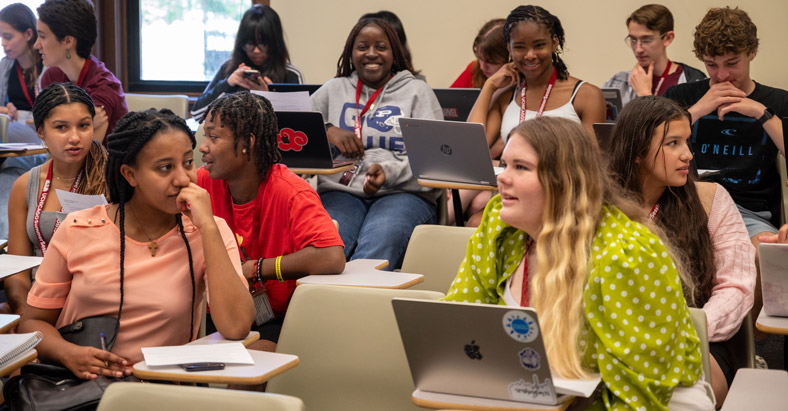
Summer Immersion Programs for Pre-College Students
Immerse yourself in one of your passions and take advantage of the rich educational resources offered by the University through our summer Immersion programs for high school students. In these undergraduate-level courses, you will get personalized attention from faculty, researchers, and other professionals who will lead you through workshop discussions, research projects, and other hands-on activities.
Whether you’re looking for creative writing workshops, preview courses in STEM fields, or to explore theories of economic policy, philosophy, and free expression., the University of Chicago’s summer Immersion courses offer you the opportunity to explore a topic of interest in-depth.
The Immersion Program is a residential program. Students are expected to live in residence and must attend class in-person. There is no hybrid or remote option for Immersion courses.
| 2024 | Session I | Session II |
|---|---|---|
| Course Dates | June 17 – July 5 | July 10 – July 26 |
| Move in | Sat., June 15 | Mon., July 8 |
| Move out | Sat., July 6 | Sat., July 27 |
Eligibility: Current high school freshmen, sophomores, and juniors, who are at least 14 years old.
To search for courses based on your grade level and academic interest, check out the course finder.
Each summer course is the equivalent of a full, quarter-long (9 week) course.
Courses are three weeks long. Students will be class from 9am – 3pm CST with a lunch break Monday through Friday. Read each course listing carefully.
Once you choose the course(s) for which you would like to apply, make a note of the department code and course number (ex. ANTH 21501).
See individual course descriptions for prerequisites, if any.